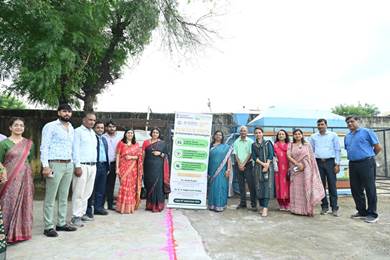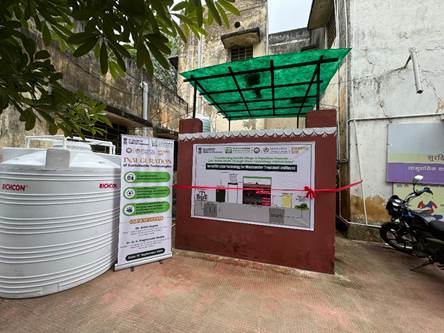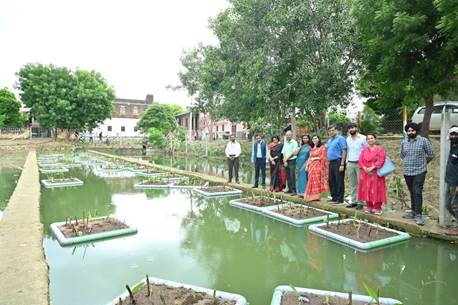Rajasthan village marches towards zero-waste through green technology interventions
Rajasthan village marches towards zero-waste through green technology interventions
Aandhi, a tiny village in the district of Jaipur, and about 43 Km from Rajasthan’s capital city of Jaipur is transforming itself to a zero-waste model with the help of green technology interventions.
Food waste, agro waste, waste water, hospital waste coming from various village sources including institutions like schools, agricultural fields, community health centres could now be converted to resources with the help of a package of technology interventions that have been recently installed in the village.
The package of technology interventions consisting of Organic Waste Bio-Methanation Plant, Vermifiltration Technology, Constructed Wetlands, resource recovery centre, stands as a unique and socially relevant initiative, creating a zero-waste model through the integration of innovative technologies.
Recently, the demonstration plants were inaugurated at three identified locations—a government school, a community health centre, and the constructed wetland at the main pond. It was graced by Dr. Anita Gupta, Head of the Climate, Energy, and Sustainable Technology (CEST) Division, along with Dr. G.V Raghunath Reddy, the Programme Officer.
The Organic Waste Bio-Methanation Plant at Government School (100 Kg Capacity) converts organic waste, such as food scraps and agricultural residues, into biogas through anaerobic digestion. Equipped with a 5 KW solar energy system. It provides clean energy for cooking and electricity generation, reducing reliance on traditional fuels and promoting renewable energy, cleaner air, and lower greenhouse gas emissions.
Utilizing earthworms to filter and treat wastewater, the Vermifiltration Technology at the Community Health Center (10 KLD Capacity) makes it suitable for purifying greywater and sewage. The treated water can be reused for agricultural irrigation or landscape watering. Solar energy integration in this patented technology ensures an eco-friendly and energy-efficient wastewater management process, contributing to sustainable water reuse and environmental conservation.
The Constructed Wetlands at the Main Pond in Aandhi Village (20 KLD Capacity) replicate natural wetland processes to treat wastewater and restore ecosystems. This system will help manage village wastewater while enhancing biodiversity, supporting local flora and fauna, and improving the overall health of the pond ecosystem.
Partnerships have been established with recycling agencies for the collection and segregation of recyclable waste from the Resource Recovery Center (RRC), ensuring its proper disposal and recycling. Vermicomposting units have also been developed, and the techniques have been disseminated among the villagers for their utilization.
These initiatives demonstrate the transformative power of green technology in rural communities, showcasing DST’s commitment to promoting innovation and environmental stewardship. The project aligns closely with India’s broader goals of achieving environmental sustainability, mitigating climate change, and promoting waste-to-wealth models that uplift local communities.
By leveraging advanced green technologies, the project aims to create a self-sustaining model of zero-waste management that can be replicated in other rural areas across the country, contributing to a cleaner, greener, and more sustainable future for all.
Such interventions could potentially offer a good prospect to be replicated across various villages creating a new pathway for India to march towards a development led inclusive and sustainable net Zero nation.


